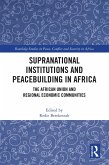In patterns of violence across the world, some victims attract strong public support and propel historic levels of collective action, but the vast majority suffer in silence. Why are some violent acts more galvanizing than others? In
Transformative Violence, Erica Marat examines the mobilization following the gang rape of a 23-year-old student in New Delhi in 2012 and the disappearance of 43 students in Mexico in 2014 to explain how certain violent acts can trigger unprecedented levels of mobilization in defense of the victims. While such events--transformative violence--emerge from complex networks of causal mechanisms, they all draw sharp moral contrasts between the typical victims and repressors in a society. More specifically, Marat shows that cases of violence that spark large public reaction share a similar set of traits. They include mobilization of both grassroots and national-level activists, a type of victim that resonates with the broader public, and a visual narrative of the victim's suffering. While all three occur independently, it is the union of these events that captures the attention of the public at large, prompts it to act, and eventually leads to policy changes. If any of these three events are missing, the chances that an act of violence will be transformative diminishes as well. Marat also identifies patterns of violence in societies and incidents of civic activism before and after events of transformative violence. By understanding the factors leading to social mobilization in the name of specific victims, we can explain what social structures, processes, and institutions move the political realm toward more inclusive representation.
Transformative Violence thus explores the dynamics of violence in the contemporary world--how a society interconnected by vibrant conversations and instant visuals rises against structural violence.
Dieser Download kann aus rechtlichen Gründen nur mit Rechnungsadresse in A, B, BG, CY, CZ, D, DK, EW, E, FIN, F, GR, HR, H, IRL, I, LT, L, LR, M, NL, PL, P, R, S, SLO, SK ausgeliefert werden.









